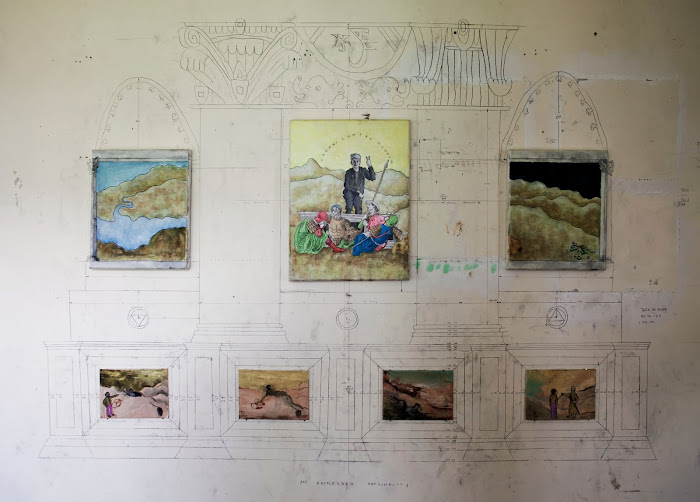I lied about the duration and opening times. Most people who came to check it out were confronted with this, as were the people in my crit (hence my being called irritating):
Here's what the lucky few who did manage to get inside saw:
Admittedly, that's not entirely true. On the main wall, Nihil est has replaced this one:
That's because Gestural painting was selected by the winner of the prize draw:
I was very scrupulous about the prize draw. The entire class (well, those who'd bothered to show up) witnessed it, and a tutor who wasn't in the draw pulled the winning number from my hat. Unfortunately, I forgot to document it.
Oh yeah, I did wonder whether it was quite cricket to include old paintings, but thought 'fuck it, I want to see how they go together'.
